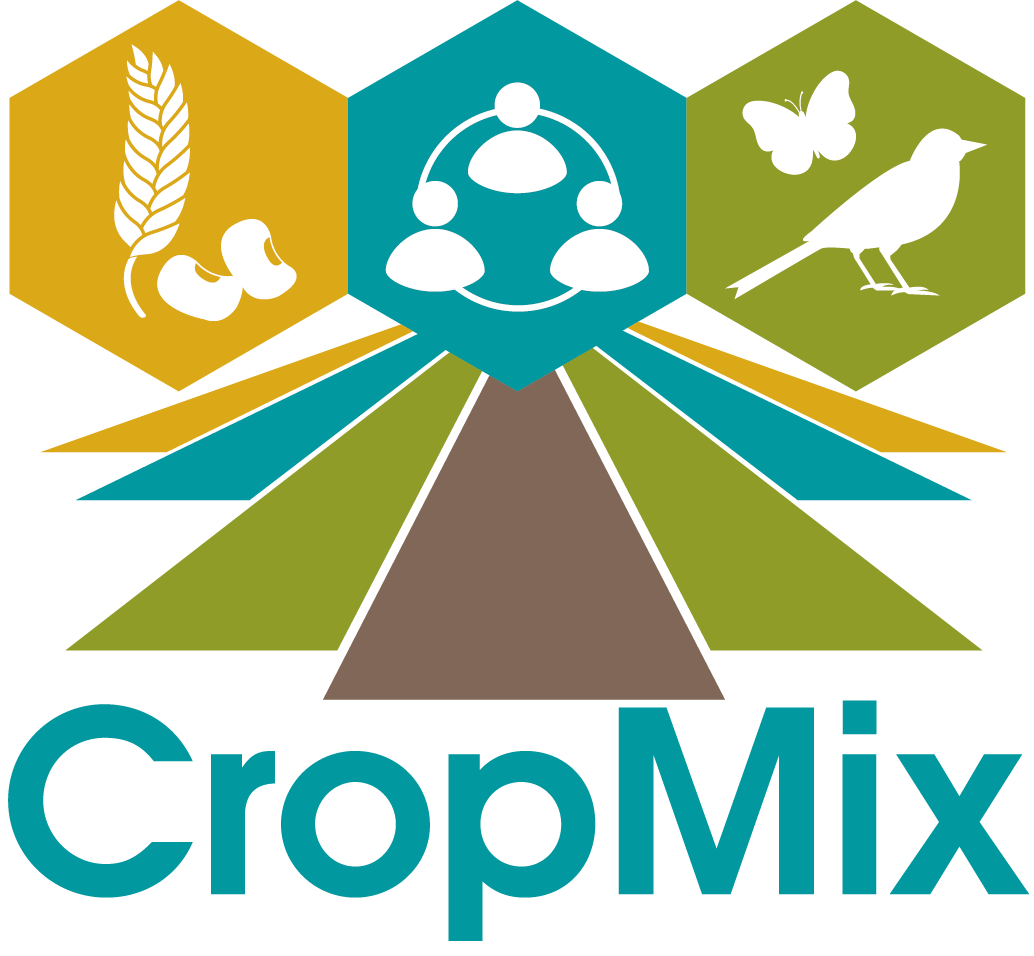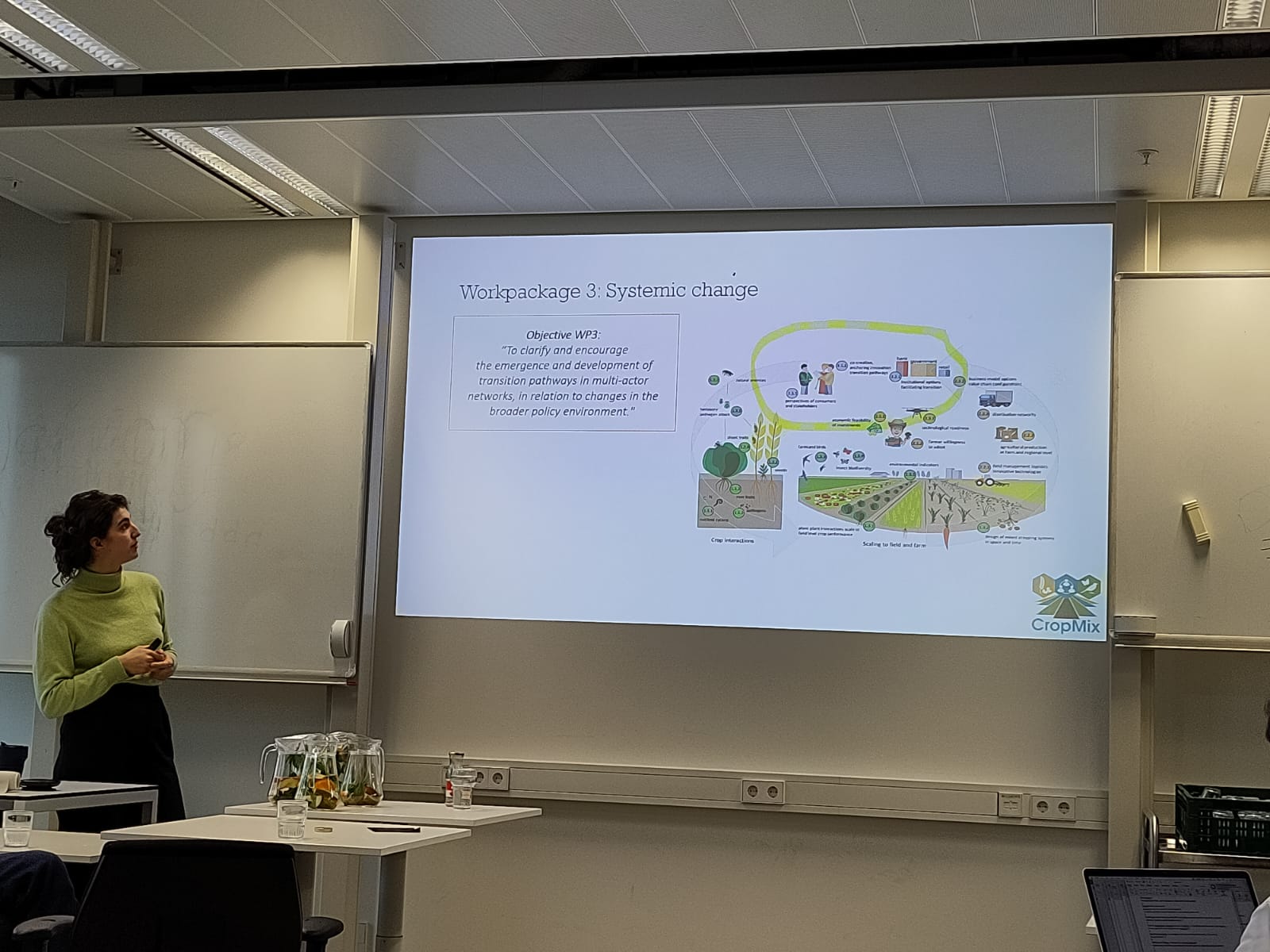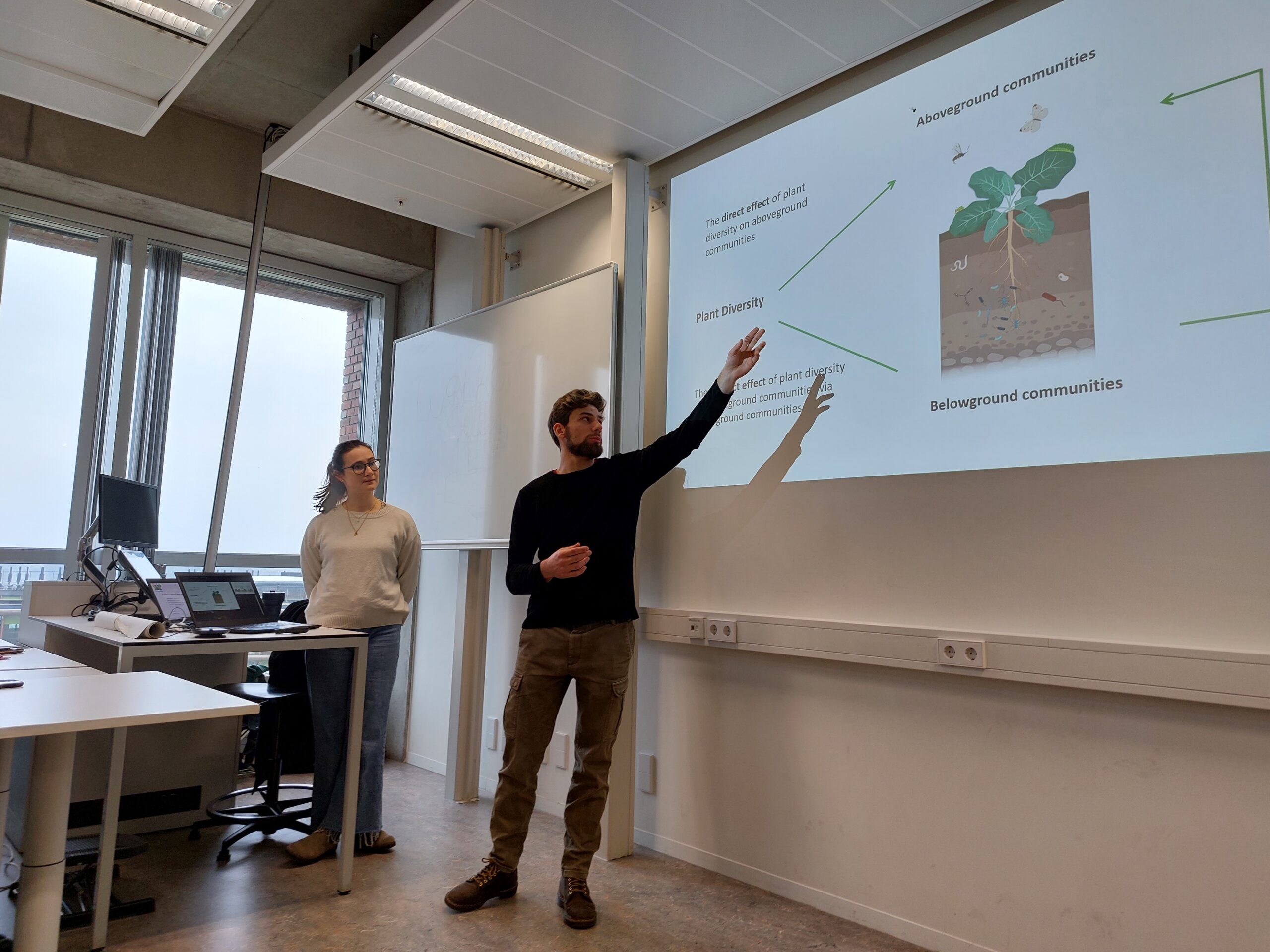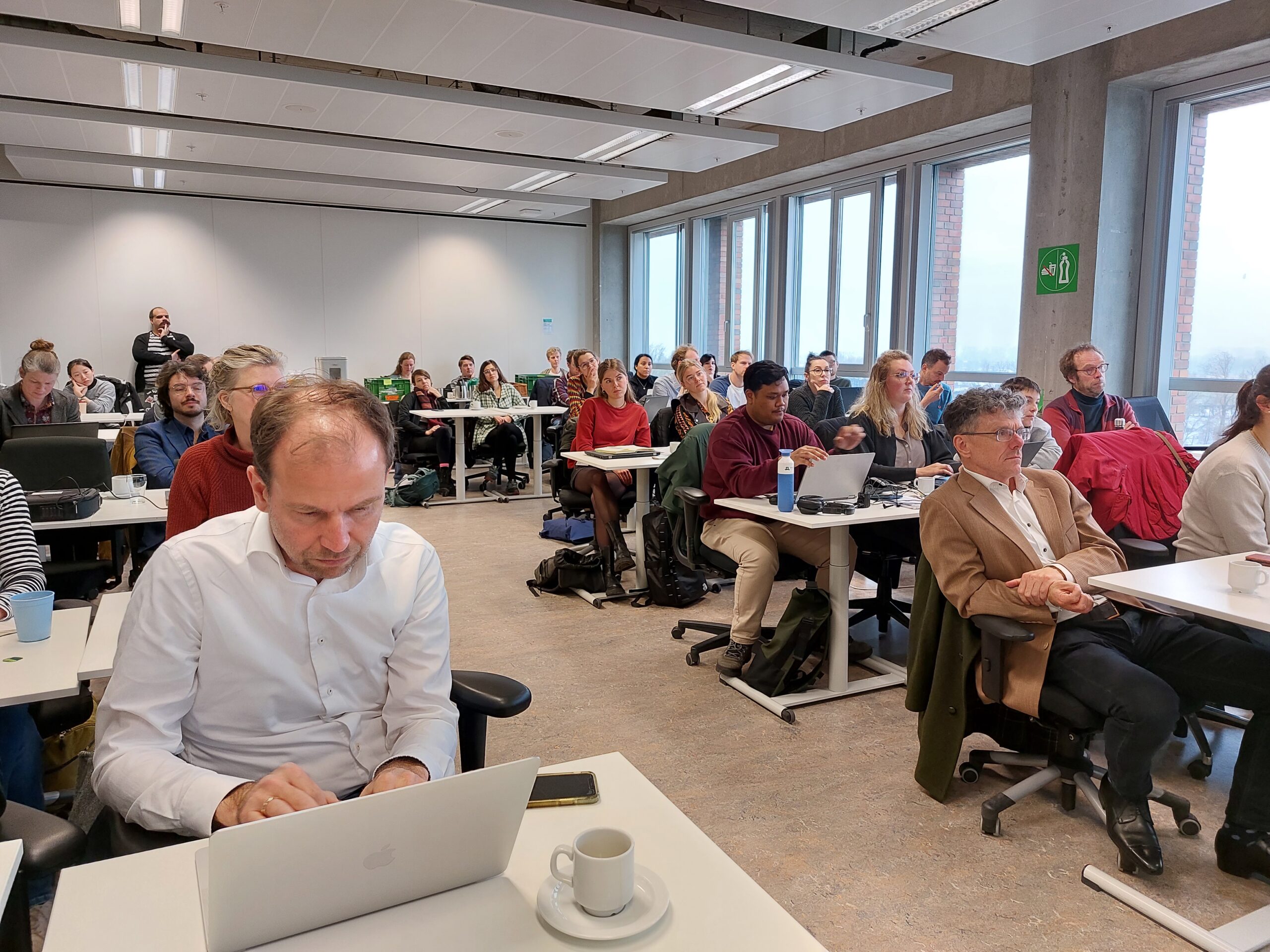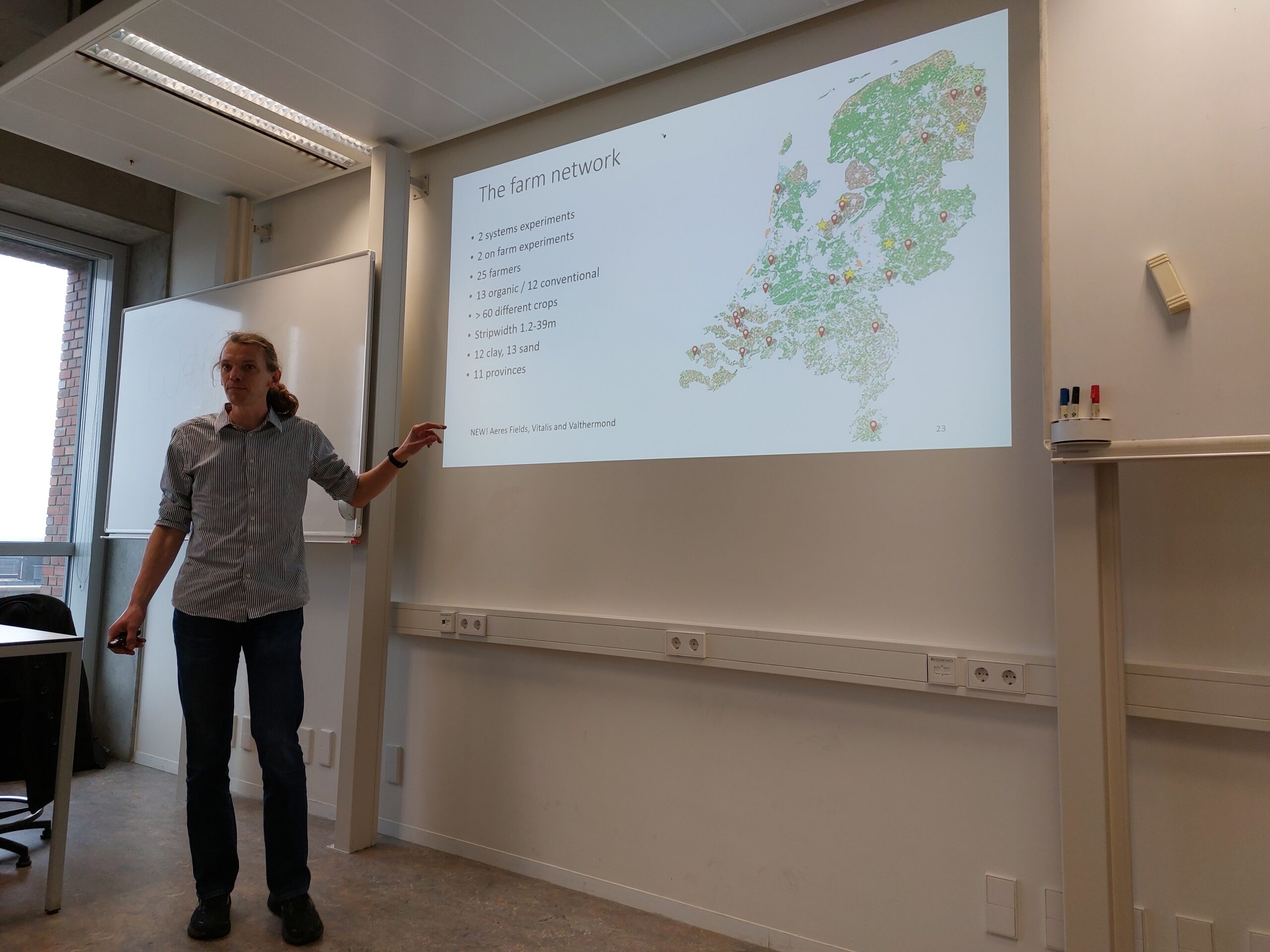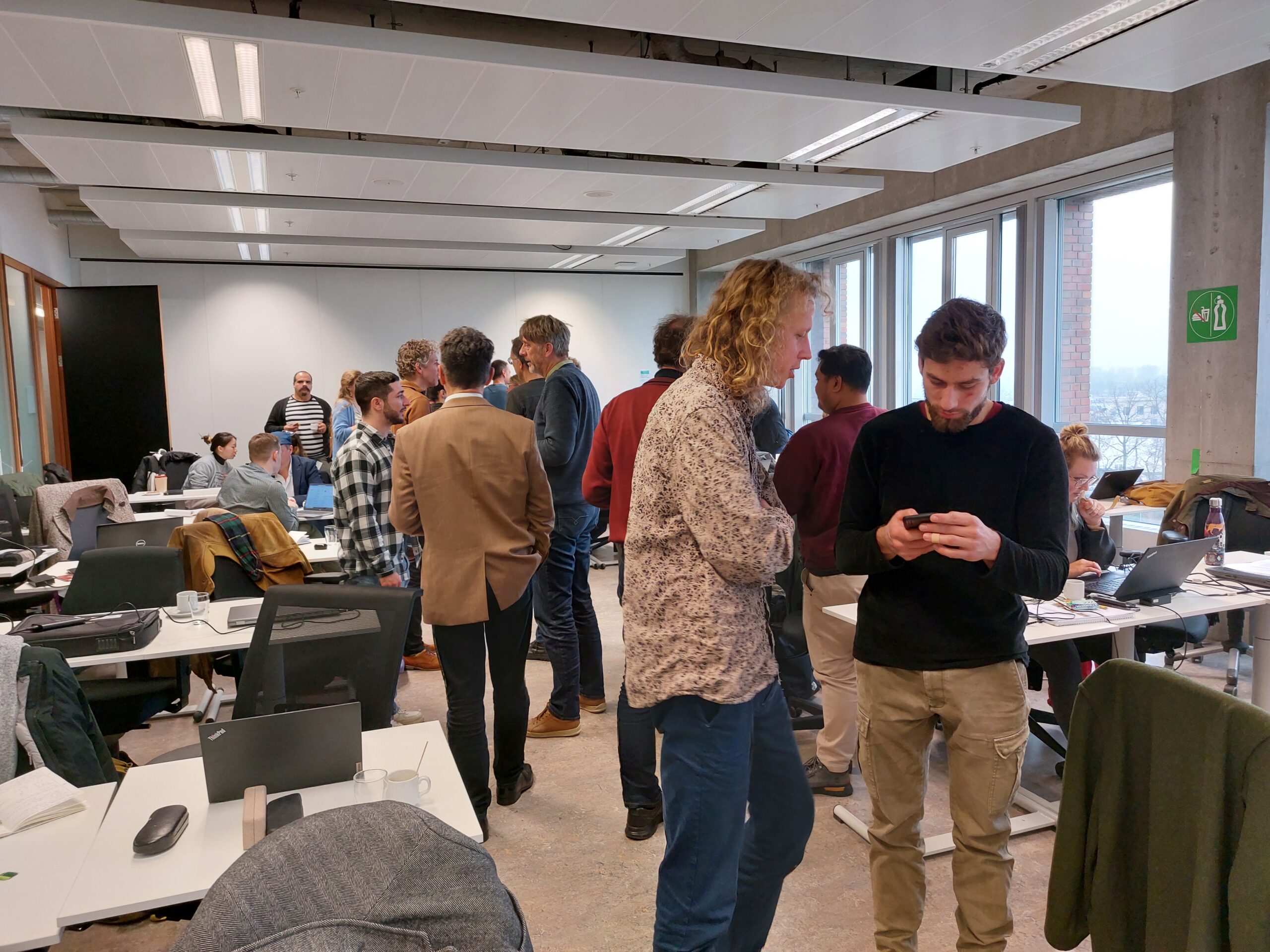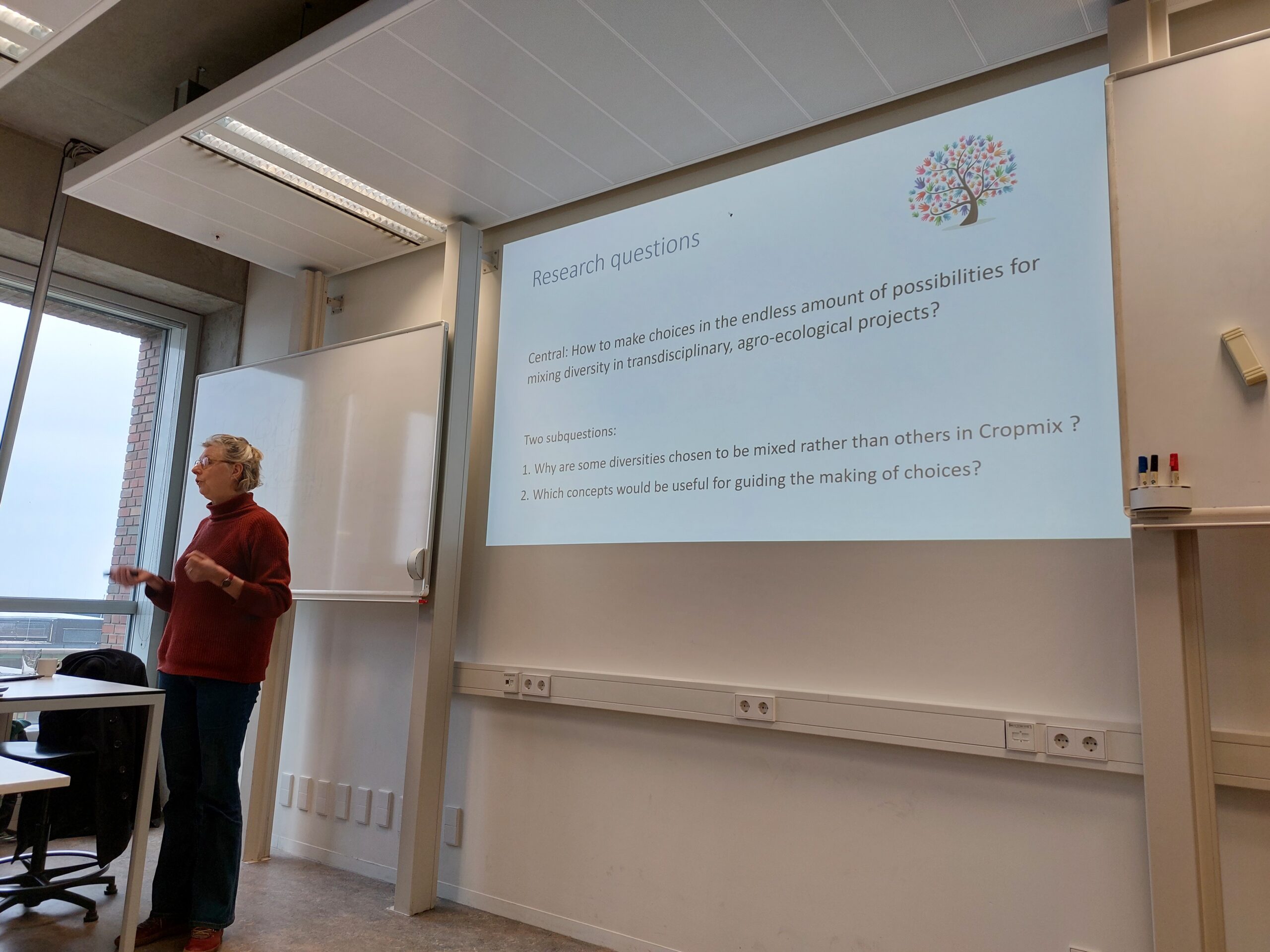On the 5th of March, almost exactly one year after our kick-off, our scientists came together for the annual research meeting. The programme focused on common goals. What collaborations have emerged and what things are we still missing?
Pitches on collaborations
We started with eight pitches of collaborations that have emerged between different scientists and disciplines. From experiments with insect droppings (frass) as fertiliser, to studying regions at the landscape level and the first outlines of joint scientific papers. Lively discussions took place in groups. We also got to hear about initiatives in education (MBO and HBO), such as strip cropping experiments at Aeres University of Applied Sciences and the recruitment of (MBO) students to solve sub-questions in the living labs.
What does you ideal farm look like in 25 years?
After lunch, Camilla Bodewes of the Athena – Research and Education Institute took us into the world of social science and asked us: what will your ideal farm look like in 25 years? Because an average transition takes 25(!) years. Groups with different disciplines drew their ideal image. One drawing had robots, another had a grid with crop rotations, and yet another had an idyllic landscape with plants, animals and trees. Each group chose a completely different angle, which nicely shows the different disciplines in our group.
Camilla then explained that transitions are 'messy' and that we, as CropMix, are in the middle of that 'mess'. She gave an overview of the work of work package 3, which includes Inez Dekker's work on how we learn in transitionsthe work of our new PhD candidate, Daphne Schoop, on institutional barriers and opportunities, and her own work on the role of consumers.
The research in work package 3 studies and supports the 'messy' process of agri-food transition. The social scientists analyse the process, but also participate in it by identifying various transition paths over the next 4 years. In addition, they study and support changes at institutional level and broaden the scope CropMix by also researching social actors, such as consumers.
In short: again much food for thought for all. Thank you to our researchers for another fun and enlightening day!
